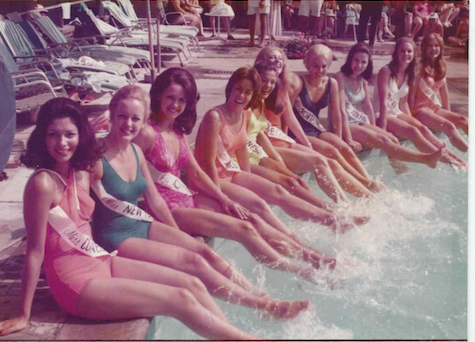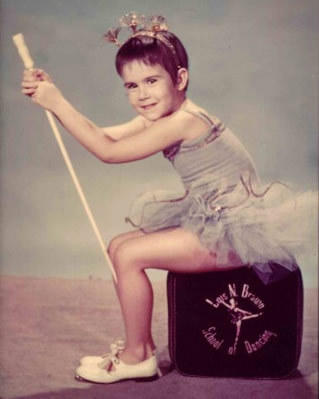There a lot of people, mostly women, many of whom are feminists, willing to opine on the ills of the Miss America Pageant without knowing a thing about the girls who enter them, let alone the money you can make. This is nothing new. You'd think by now there'd be a higher bar on expressing opinions and rendering judgments on another girl's choices that are actually nobody else's business.
All because of swimsuits.
Having been Miss Missouri, which seems like a lifetime ago, I never knew anyone who enjoyed that part of the pageant. It never bothered me. But then I spent my life in leotards, starting dancing as soon as I could walk and not stopping until I left Broadway.
See my segment on HuffPost Live - Miss America Isn't Anti-Feminist.
I just wish the critics knew the subject they were ridiculing. It's also long past time to put down the notion that being in the Miss America Pageant is anti-feminist. Though it is another example of why so many women won't embrace the word. If I'd followed The Feminist Handbook I likely wouldn't have gone to college.
During the Miss America Pageant I came out of the Chalfonte-Haddon Hotel one day and was greeted by a N.O.W. protester who asked how I could degrade myself like that. "Do you want to pay for my college tuition?" was my response.
It was a low hanging pitch that was easy to knock out of the hotel parking lot, because like so many others she didn't have a clue why I'd entered the pageant or what it did for me.
All these years later the same tired presumptions are being made.
"The Pageant King of Alabama," published a few weeks ago in the New York Times.
Alverson believes his coaching isn't mainly about winning costume crowns. It is about nothing less than his clients' conception of themselves. "The girls have to decide -- 'What do I want the jury to know about me and my story?' Isn't that what we all do all the time? Isn't life just a pageant?" [...]
"Pageants create a culture," says Kathy Peiss, a historian at the University of Pennsylvania and the author of "Hope in a Jar: The Making of America's Beauty Culture," in which beauty, poise and all these kinds of "feminine" traits are graded. They become part of women's self-reflection. On the other hand, these have been real opportunities for women to get scholarship money, go to college, become professional.
It was a no brainer for me, which opened up after being in the Miss Teenage America Pageant. Now 19 (I turned 20 at the Miss America Pageant), already a professional performer and dancer, my mom and I were barely making it. There were no bad choices if I was to get to college then out of Missouri, except doing nothing. What the pageant offered if I could win Miss Missouri was incalculable. My bookings went up, my fee did, too, and it opened a lot of other doors.
The Miss America Pageant has at its foundation an arcane marketing stereotype for girls, which was drawn up in another era. Some say it began with P.T. Barnum back in the 1900s, as the New York Times cited last month. Others say it was a tourism gambit by Atlantic City, New Jersey, so it's ironic it's back there, because the seaside town sure needs it.
I'm as shocked the Miss America Pageant is still alive as I am that women continue to rail on behalf of feminism that it's bad for modern women. It is a recurring theme, which is as preposterous to posit as asserting that the contestants of the Miss America Pageant don't know that being sexy is part of it.
Some actually believe feminists aren't supposed to use looks or sex appeal to get ahead, which simply punctuate their skills and intelligence. I always ignored that rule, because even if I wasn't the prettiest in the pageant, I always knew that charm could help me get what I needed, which was a way out of where I was born and on to fulfilling my dreams.
Feminism to me was always about getting what you want and being free to make the choices you wanted to get you there, which thanks to equality continue to expand. It has absolutely nothing to do with anyone approving of the choices you make.
Taylor Marsh is the author of the new book The Sexual Education of a Beauty Queen - Relationship Secrets From the Trenches. Meet Taylor at the regional Baltimore Book Festival this month.
Photos property of TM, LLC., used by permission.


